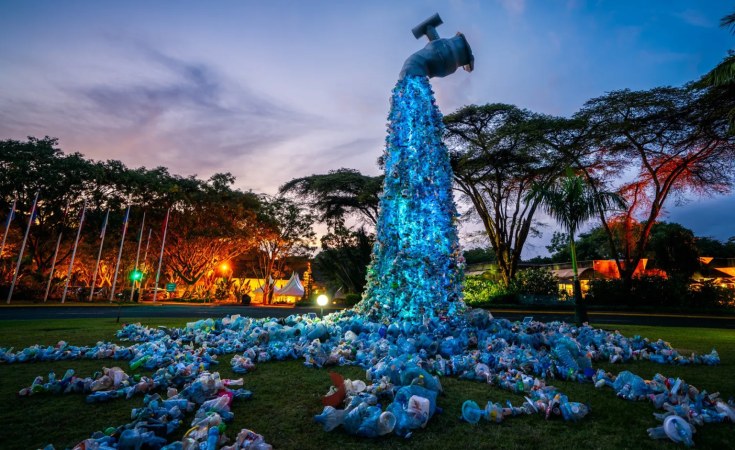A coalition of Civil Society Organisations, CSOs, has called on leaders in the Global South to address their nations' plastic crisis, saying strict limits on toxic chemicals in plastics be imposed.
The organisations that made this call at the third session of the Intergovernmental Negotiating Committee, INC, on Plastic Pollution organised by the Global Alliance for Incinerator Alternatives, GAIA, include Acción Ecológica México; Aotearoa Plastic Pollution Alliance/New Zealand Product Stewardship Council/Massey University Political Ecology Research Centre; Asociación Nacional de Recicladores de Chile; Consumers' Association of Penang and Sahabat Alam Malaysia; Foundation For Environment And Development; GAIA Latin America & the Caribbean; and Green Africa Youth.
They advocated for a comprehensive set of crucial measures and called for the reduction of plastic production, discontinuing of harmful technologies like incineration, imposing of strict limits on toxic chemicals in plastics and adoption of a transparent approach to chemical use.
Speaking, the Advisor of GAIA Latin America & the Caribbean's Zero Waste and Plastics Alejandra Parra, said: "To stop waste colonialism, we need to reduce plastics production. To make recycling really useful, we need to reduce plastics production. To manage waste in an environmentally healthy manner, we need to reduce plastics production. To achieve the climate goals, we need to reduce plastics production.
"To respect human rights and planetary boundaries, we need to reduce plastics production. And that is what we must achieve with this plastics treaty that is currently being negotiated. But some countries don't want this and are acting so this process fails. That is why we need to unite our voices because we are the ones suffering the worst consequences of plastics pollution and we need to be heard."
Also speaking, Campaigner of GAIA/BFFP Africa Plastics, Merrisa Naidoo, said: "Colonialism continues to manifest on the African continent in the form of 'waste trade' that permits the importation of toxic and non-recyclable waste into the continent from Global North countries. Everyday, markets in Accra, Ghana, and rivers in Kenya are inundated with Europe's addiction for fast fashion, particularly plastic fiber-based apparel. This unjust practice places economic, social, and environmental burdens on Africa and its future generations. It reflects a disregard for Africa's sovereignty and the laws in place to protect its people.
"Therefore, the Global Plastics Treaty must prioritise closing trade loopholes through a global plastics trade tracking system, imposing trade bans on plastics and associated chemicals post-phase-out, and strengthening the Y48 listing of plastics waste in Annex II of the Basel Convention to explicitly include paper waste contaminated with plastics, textiles, andrefuse-derived fuel (RDF) to halt the dumping of these mixed plastic wastes on the continent. Africa is not a dumping ground."
On her part, Officer of GAIA Asia Pacific's Plastic Policy, Arpita Bhagat, said: "Prior to the industry introducing toxic plastics into our local systems, causing harm to our land and sea; cultures in the Asia and Pacific region prioritized co-existing with nature. This cultural value has also positioned us at the forefront of adopting Zero Waste solutions.
"The most significant opportunity for addressing global plastics pollution lies in an international agreement. This agreement should advocate for a policy mechanism mandating the transition away from plastics. We need a treaty grounded in human rights and justice, recognising the role of petrochemicals in plastics by mandating a reduction in production, banning harmful chemicals and polymers, and discontinuing polluting technologies like incineration, plastics-to-fuel, and chemical recycling. Moreover, it should underscore scaling up reuse, safeguarding indigenous peoples' rights, and facilitating a just transition for informal workers and waste pickers away from plastics and into Zero Waste systems. To ensure the effectiveness of this instrument, a conflict of interest policy is essential to prevent the industry's disproportionate influence on negotiations and avoid maintaining the status quo."


